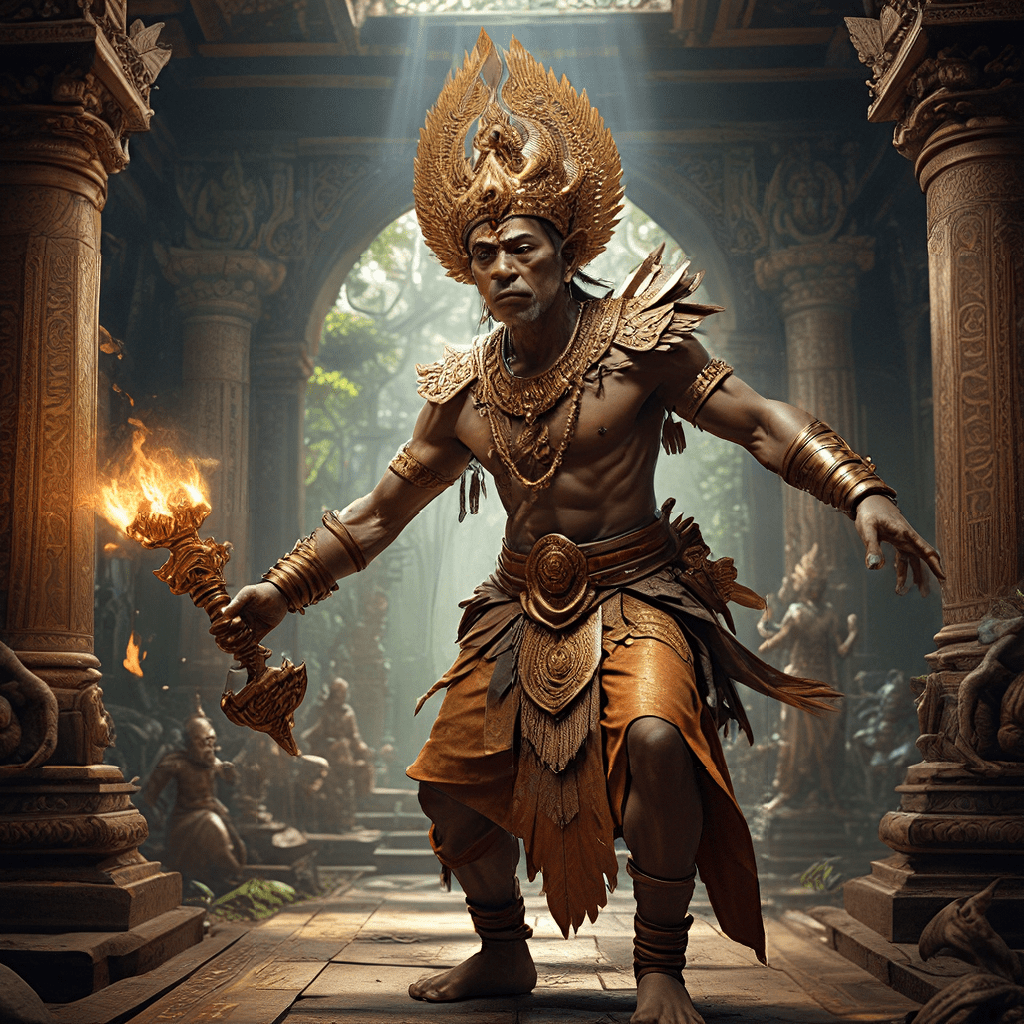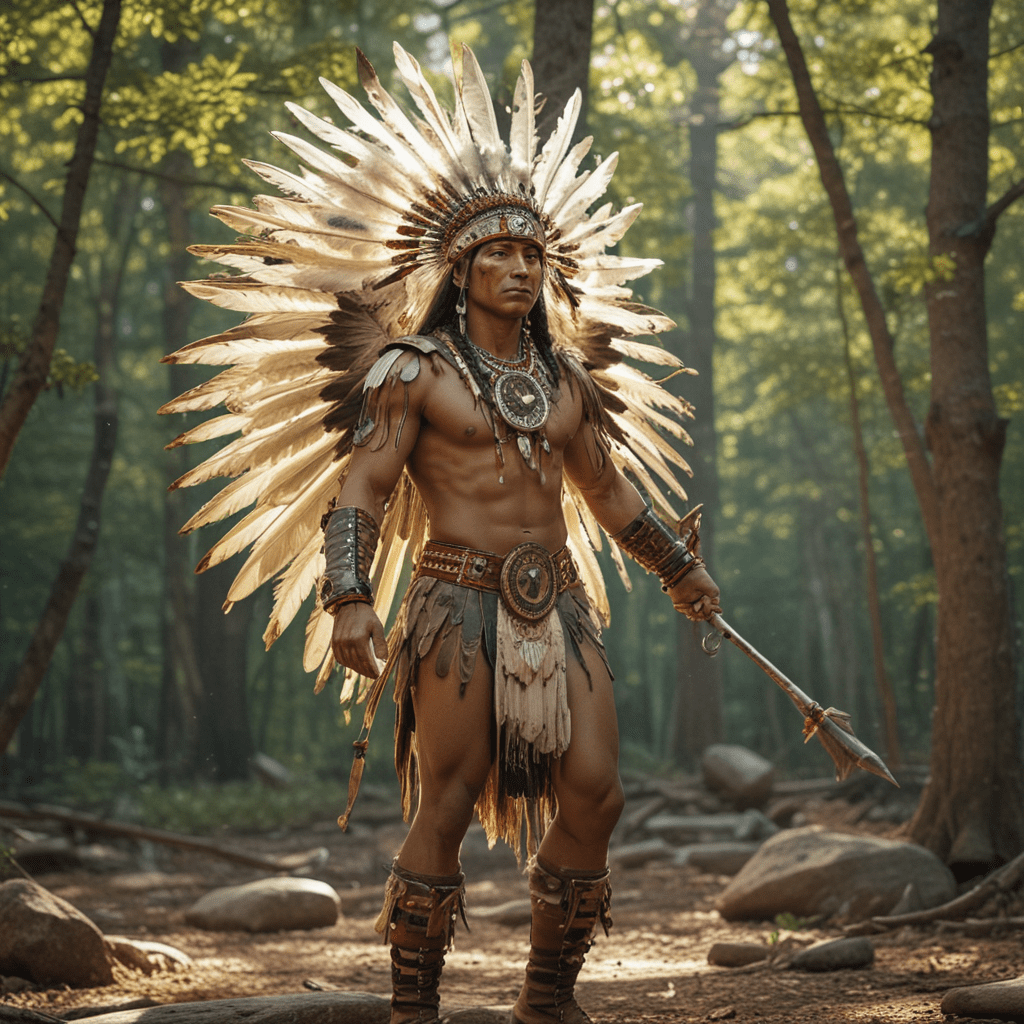Indonesian Mythology: A Tapestry of Fate and Choice
Indonesian mythology, a rich tapestry woven with ancient beliefs, stories, and traditions, provides a unique perspective on the intricate relationship between fate and choice. This complex interplay between the forces of destiny and free will is a central theme in Indonesian folklore, shaping the worldview of people across the archipelago. From the mystical realms of gods and spirits to the everyday lives of ordinary people, the question of how much control we have over our own lives is a constant thread in Indonesian mythology.
The Cosmic Dance of Dewata and Manusia: A Framework for Fate and Choice
Indonesian mythology is underpinned by the belief in a cosmic dance between the Dewata (gods) and Manusia (humans). This dynamic relationship forms the foundation for understanding the interplay of fate and choice. The Dewata are believed to hold immense power over the natural world and human destiny. They are seen as both benevolent and capricious, capable of bestowing blessings and inflicting curses. This concept suggests that certain aspects of human life are predetermined, influenced by the will of the gods.
The Power of Destiny in Indonesian Folklore: From Myths to Everyday Beliefs
The influence of fate permeates Indonesian folklore. From ancient myths to contemporary beliefs, the concept of predetermined destiny is deeply ingrained in Indonesian culture. Myths like the story of Sangkuriang, where the protagonist is destined to marry his own mother, highlight the power of fate to determine the course of human lives. Everyday beliefs also reflect this influence, such as the practice of fortune telling and the use of horoscopes to predict future events. This suggests that Indonesians believe that certain aspects of their lives, like their relationships, career paths, and even their health, are predetermined.
Kisah-kisah: Stories that Shape the Indonesian Understanding of Fate and Choice
Indonesian mythology is filled with fascinating stories called "kisah-kisah" that offer insights into the Indonesian understanding of fate and choice. These stories, passed down through generations, explore the consequences of human actions and the role of fate in shaping human destinies. Some stories emphasize the importance of following one's destiny, while others highlight the power of human will to overcome predetermined obstacles. Through these stories, Indonesians learn to grapple with the complex interplay between fate and choice, exploring the possibilities and limitations of their own agency.
The Role of Gods and Ancestors in Determining Destiny
In Indonesian mythology, fate is often seen as intertwined with the will of the gods and ancestors. The gods, such as Batara Guru, the supreme god, and Dewi Sri, the goddess of rice, have the power to influence human destiny through their blessings and curses. Similarly, ancestors are believed to hold a significant influence on the lives of their descendants. Respecting and honoring ancestors is crucial in Indonesian culture, as their spirits are believed to have the power to intervene in the affairs of the living. This belief reinforces the idea that human destiny is not entirely within our control, but is also shaped by the actions and will of supernatural entities.
The Human Capacity for Choice: Challenges to Divine Will
While Indonesian mythology acknowledges the power of fate, it also recognizes the human capacity for choice. Humans are not simply passive recipients of destiny, but active agents who can influence their own paths. This idea is reflected in stories where individuals, through their actions and choices, overcome seemingly predetermined obstacles. The tale of "Si Pitung," a legendary Robin Hood-like figure, illustrates the power of human agency to challenge societal norms and fight for justice, even when faced with seemingly insurmountable odds. These stories emphasize that while fate may set certain boundaries, it doesn't completely dictate human destiny.
The Concept of Karma and its Impact on Fate and Choice
The concept of karma, a fundamental principle in many Eastern religions and philosophies, also plays a significant role in Indonesian mythology. Karma refers to the law of cause and effect, where actions in this life have consequences in the present and future. It suggests that our choices and actions have an impact on our destiny, shaping the course of our lives. This belief empowers individuals to take responsibility for their actions and strive to live virtuously, knowing that their choices will ultimately influence their destiny. This reinforces the idea that while fate may play a role, humans have the agency to shape their own outcomes through their actions and choices.
The Power of Rituals and Practices in Shaping Destiny
Indonesian mythology emphasizes the importance of rituals and practices in shaping destiny. These rituals, deeply rooted in tradition and belief, are viewed as tools to influence the forces of fate and seek divine intervention. Rituals like "selamatan," a celebration of life events involving offerings to the gods and ancestors, are believed to bring blessings and protection. Offerings to the spirits of nature, prayers for blessings, and ceremonies seeking guidance and protection are all part of the Indonesian cultural landscape. These practices highlight the belief that humans can actively engage with the forces of fate through rituals and offerings, seeking to influence their destiny and create a more favorable outcome.
Exploring the Interplay of Fate and Free Will in Indonesian Mythology
Indonesian mythology offers a nuanced perspective on the interplay of fate and free will. It acknowledges the power of destiny, recognizing that certain aspects of our lives are predetermined by divine forces and past actions. But it also emphasizes the human capacity for choice, recognizing our agency to shape our destinies through actions, choices, and engagement with the spiritual world. The intricate dance between fate and free will is a constant theme in Indonesian mythology, reminding us that our lives are a product of both divine forces and human agency.
Contemporary Reflections: How Indonesian Mythology Continues to Inform Our Understanding of Fate and Choice
Today, Indonesian mythology continues to provide a framework for understanding the relationship between fate and choice. The belief in destiny offers comfort in times of adversity, reminding individuals that even in difficult circumstances, there is a larger plan at play. The emphasis on human agency inspires individuals to take charge of their lives, striving to make choices that align with their aspirations and values. By embracing the complexities of this interplay, Indonesians find meaning and purpose in their lives, navigating the challenges and opportunities that arise while acknowledging both the forces of fate and their own power of choice.
FAQ
Q: What are some examples of Indonesian myths that illustrate the interplay of fate and choice?
A: The stories of Sangkuriang, Si Pitung, and the legend of the "Panji" cycle all depict how fate and free will interact in shaping human destinies.
Q: How does the concept of karma impact Indonesian beliefs about fate and choice?
**A: **Karma reinforces the idea that our actions have consequences, influencing both our present and future. It encourages us to take responsibility for our choices and strive to act virtuously, knowing that our actions will shape our destiny.
Q: What are some contemporary examples of how Indonesian mythology influences understanding of fate and choice?
A: Many Indonesians still consult fortune tellers and seek guidance from spiritual leaders, seeking to understand how fate may be influencing their lives. The belief in the power of rituals and practices also persists, with many individuals continuing to perform traditional ceremonies to seek blessings and protection.


